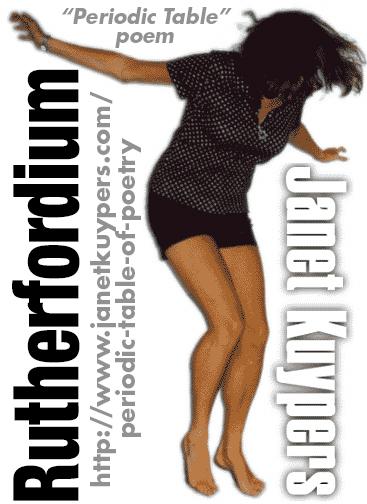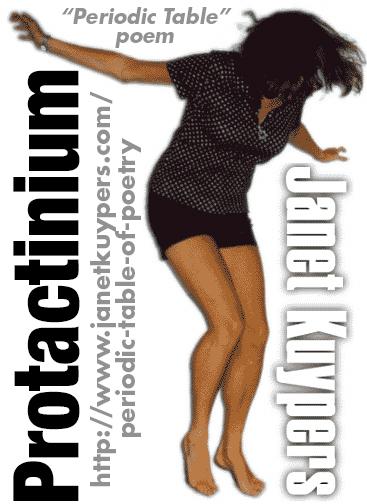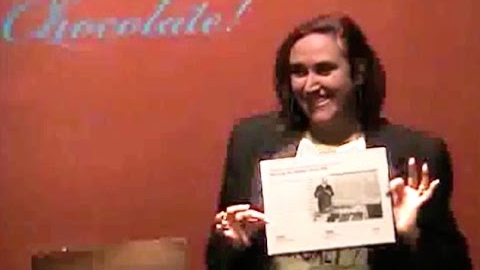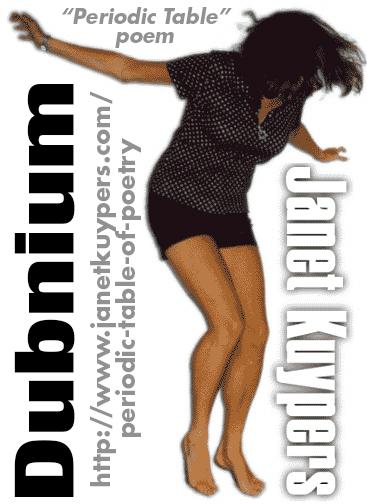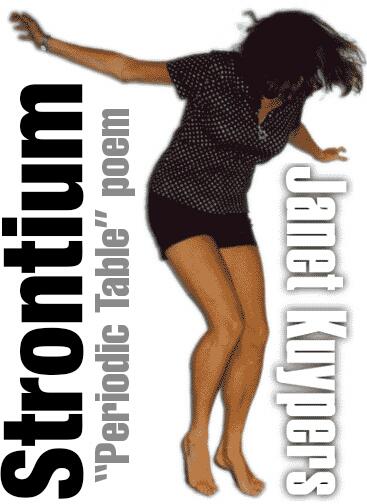Thorium
Janet Kuypers
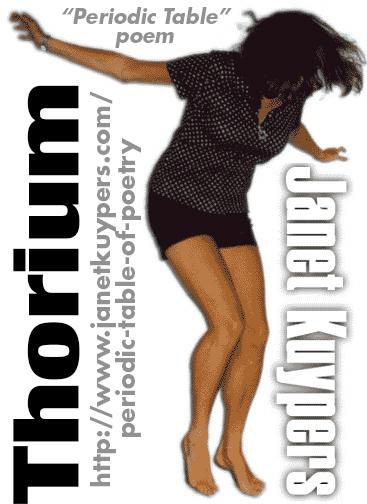
from the “Periodic Table of Poetry” series (#90. Th)
7/1/14
Think of how many times
you’ve heard scientists say
(or maybe you’ve heard it
from people on daredevil tv)
“do not try this at home” —
knowing that someone,
somewhere
won’t heed this advice
and end up
with an unintended explosion
instead of a fantastic discovery
from their radical experiment…
Well, good thing one Swedish chemist
didn’t decide to “not try this at home”,
doing groundbreaking experiments
in his kitchen flat.
Though Jöns Jacob Berzelius < !—(yens yoke-ub bear-zeal-ee-us)—>
discovered a few elements,
he seemed so psyched
to name one new element
for the Scandinavian god of thunder, Thor.
And it’s kind of funny
that with his affinity for Thorium,
he never understood
Thorium’s radioactivity
(because, well,
when he discovered Thorium,
radioactivity hadn’t
even been discovered yet).
But after Thorium was discovered,
Thorium was used
for powering gas lamps
back in the day
when the world’s light
disappeared at nightfall.
But wait, Thorium’s radioactive,
and back in the day
they didn’t know this,
so did people get cancer
from radiation poisoning?
Well, maybe if
there was enough Thorium
in those gas lamps,
and maybe if that Thorium
wasn’t stopped from
getting to humans
by the glass surrounding the lamps…
Because only if you’d
eat Thorium (and maybe
only the supernatural God Thor
would eat Thorium)
maybe only if you ate it
only then might it make you sick.
I mean, they still sell it
today in camping lamps,
unless you actually look for a lamp
that’s Thorium-free…
But even when it came
to eating Thorium,
some people would do it
back in the ‘30s with x-rays
for detecting their cancer,
because at the time Thorium
was perfect for saving lives
thanks to those x-rays.
So with Thorium for cancer x-rays,
the new cancer risk
seemed like a fair trade-off
before they could find
a safer x-ray detection agent.
So yeah, there’s no way
a Swedish chemist
could have guessed it
when he discovered
the element Thorium
and wanted to name it
after the God of Thunder,
but Thorium can bring
some light into our world,
as long as we use Thorium
in just the right way.

